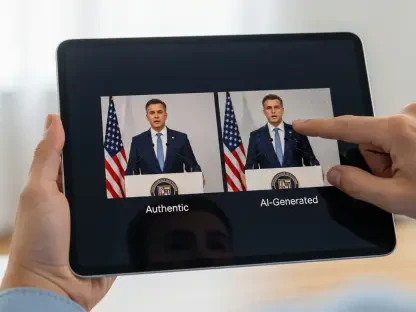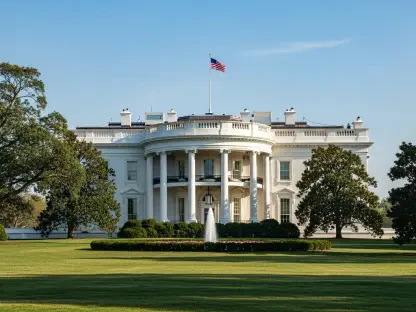Today, we’re thrilled to sit down with Donald Gainsborough, a political savant and the visionary leader behind Government Curated. With decades of experience in policy and legislation, Donald offers unparalleled insights into the complex intersections of government oversight, financial regulation, and corporate accountability. In this conversation, we’ll explore the recent controversies surrounding a high-profile transition from the corporate world to government leadership, the dramatic decline in a major financial technology company’s stock value, allegations of mismanagement, and potential conflicts of interest tied to federal contracts and international bailouts. Join us as we unpack these pressing issues and their broader implications for public trust and governance.
Can you walk us through the journey of a corporate executive transitioning into a significant government role, particularly in the context of financial regulation and social welfare agencies?
Absolutely, Javier. When a high-profile executive moves from a company like a financial technology giant into roles overseeing critical government agencies, it’s a complex process fraught with legal and ethical considerations. Take the case we’re seeing now with the Social Security Administration and IRS leadership. The individual in question had to divest substantial investments to comply with federal ethics laws, ensuring no personal financial interests conflict with public duties. This divestment often involves selling off shares at a specific point in time, which can lead to scrutiny if the timing appears advantageous—especially if a stock’s value plummets shortly after. The broader challenge here is balancing the expertise such leaders bring with the potential baggage of their past corporate decisions. It’s a tightrope walk between leveraging industry knowledge and maintaining public trust.
What factors do you believe contribute to a sudden and significant drop in a company’s market value, such as a 40% decline in a financial tech firm?
A drop of that magnitude—equivalent to a $30 billion loss in market value—often signals a perfect storm of internal and external issues. In the case of the financial tech company we’re discussing, revised earnings forecasts under new leadership likely shattered investor confidence. When a new CEO steps in and backtracks on previous projections, it suggests either overoptimism or mismanagement in the original estimates. Additionally, reliance on volatile international markets, like Argentina in this instance, can amplify risks. If a company banks on growth in one region to offset slowdowns elsewhere and those expectations don’t materialize, the financial fallout can be severe. It’s a reminder that global economic conditions and corporate transparency are deeply intertwined.
How do you interpret the concerns raised by lawmakers about potential mismanagement or misleading financial projections by corporate leaders before they enter government service?
Lawmakers are right to dig into these concerns because they touch on both accountability and competence. When senators suggest that a former CEO may have misled investors about a company’s financial health, it raises red flags about whether that individual can be trusted to oversee massive public programs. If there’s a perception—or evidence—that projections were inflated or risks downplayed, it erodes trust not just in the company but in the leader’s judgment. For someone now in charge of agencies like Social Security and the IRS, where precision and integrity are paramount, these past actions are under a microscope. It’s not just about whether they did something wrong; it’s about whether their track record inspires confidence in managing taxpayer funds and vulnerable populations.
What are your thoughts on the timing of divestitures by executives transitioning to public roles, especially when they avoid massive financial losses compared to other investors?
The timing of divestitures is a lightning rod issue because it can look like insider advantage, even if it’s legally mandated. When an executive sells off shares worth hundreds of millions before a stock crashes—avoiding, say, a $300 million loss while everyday investors take the hit—it fuels perceptions of unfairness. Legally, they may be in the clear since divestment is required for government roles, but ethically, it’s a gray area. The public often sees this as a ‘get out of jail free’ card, especially if retirees and small investors are left holding the bag. It underscores the need for stricter transparency rules or blind trusts to mitigate even the appearance of self-interest during these transitions.
How significant is the class action lawsuit filed by investors against a financial tech company, and what might be the broader implications of such legal actions?
Class action lawsuits like this one, filed by investors over a specific period of alleged misrepresentation, are a big deal because they signal widespread dissatisfaction and potential systemic issues. They’re not just about recovering losses; they’re about holding corporate leadership accountable for transparency. If the allegations of misleading financial projections stick, it could severely damage the company’s reputation and investor confidence long-term. Beyond that, when the former CEO is now in a high-profile government role, the lawsuit can spill over into public trust in those agencies. People start asking: if they couldn’t manage a private company without controversy, how will they handle public funds? It’s a ripple effect that can impact both corporate and governmental spheres.
Why do you think lawmakers are focusing on whether discussions about international bailouts, such as a $40 billion deal with Argentina, occurred between corporate entities and administration officials?
This line of inquiry is critical because it probes potential conflicts of interest at the highest levels. When lawmakers ask if a company or its former leader discussed a massive bailout with administration officials, they’re looking for signs of undue influence or favoritism. A bailout of that size isn’t just financial aid; it’s a geopolitical chess move that can directly affect a company’s bottom line if they have significant stakes in the region. If conversations happened, it raises questions about whether corporate interests shaped government policy—or vice versa. It’s about ensuring that public decisions aren’t tainted by private gain, especially when the same individual later assumes a role overseeing federal programs.
What’s your take on the re-awarding of federal contracts, like a debit card program for government beneficiaries, under questionable circumstances?
The re-awarding of a contract, especially one as significant as a debit card program for Social Security beneficiaries and veterans, under murky circumstances is a textbook red flag for oversight issues. When a contract initially slated for one entity gets redirected—particularly after a change in leadership or administration—it suggests either procedural irregularities or external pressures. These programs are lifelines for millions of Americans, often the most vulnerable, so any hint of impropriety undermines trust in how taxpayer money is allocated. It also opens the door to questions about whether personal or corporate connections played a role, especially if the winning company has ties to individuals now in government. Transparency in procurement is non-negotiable.
What is your forecast for the future of public trust in government agencies when leaders with controversial corporate pasts are appointed to key roles?
Looking ahead, I think public trust in government agencies will face significant challenges if these kinds of controversies persist. When leaders with baggage from their corporate tenure—whether it’s stock scandals, lawsuits, or perceived conflicts—take the helm of agencies that directly impact people’s lives, skepticism grows. The average American already feels disconnected from bureaucratic processes, and stories of potential mismanagement or self-interest only deepen that divide. My forecast is that without robust ethics reforms, clearer divestment guidelines, and proactive communication to address these concerns, we’ll see a continued erosion of confidence. Trust isn’t just given; it’s earned through consistent accountability, and that’s the hurdle these leaders and agencies will need to overcome in the coming years.









